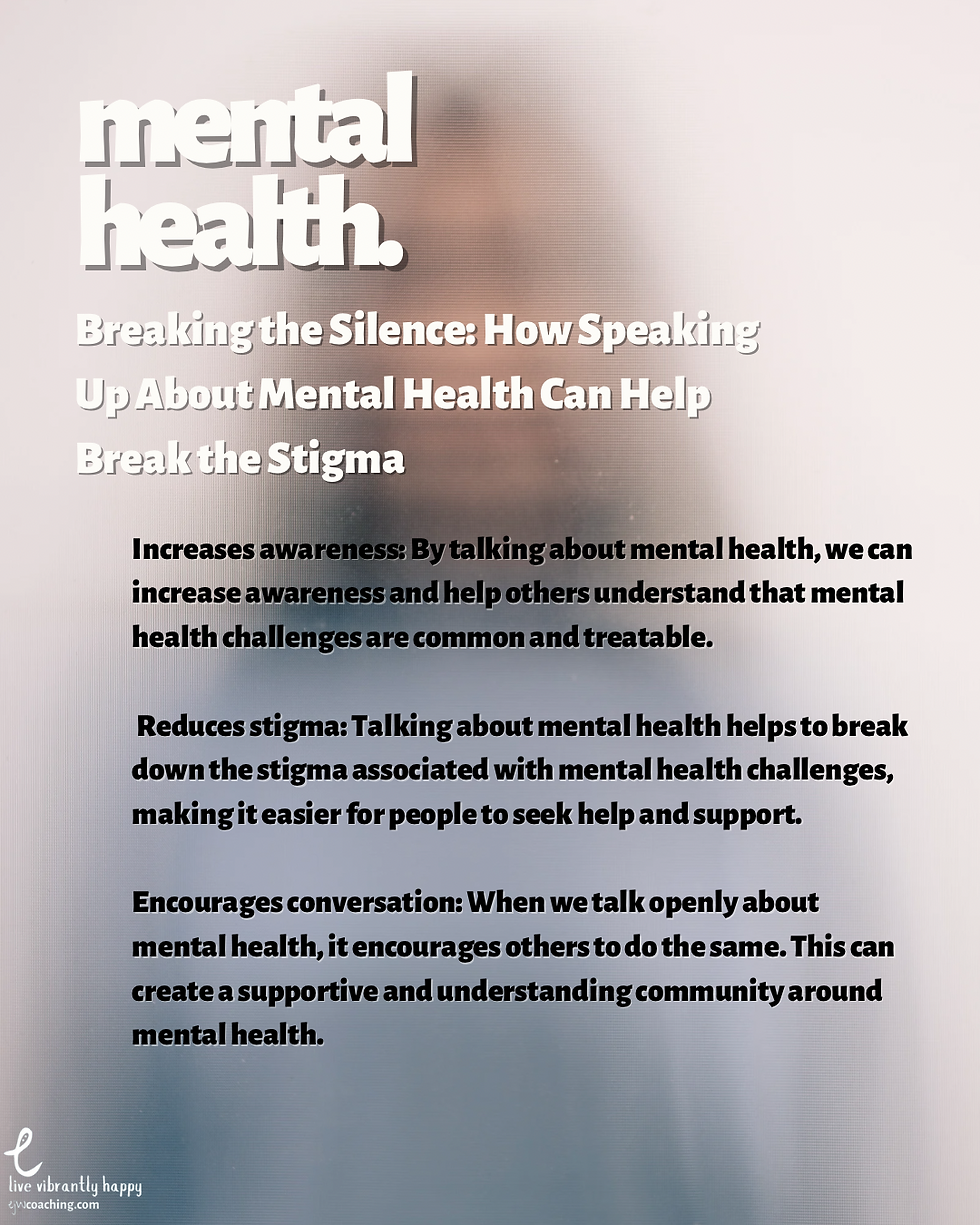Move Your Body, Move Your Mind: The Powerful Connection Between Movement and Mental Health
- Erica Woolley
- May 2, 2023
- 3 min read
Updated: Apr 25, 2024

Regular exercise is one of my major coaching pillars and that is because it isn't just great for your physical health, it can also have a powerful impact on your mental wellbeing.
10 Powerful Reasons why movement is important for mental health:
Reduces symptoms of depression: Exercise has been shown to reduce symptoms of depression and improve mood.
Reduces symptoms of anxiety: Physical activity can help reduce symptoms of anxiety and promote relaxation.
Increases self-esteem: Regular exercise can increase self-esteem and confidence.
Reduces stress: Exercise can help reduce stress levels and improve overall well-being.
Improves cognitive function: Physical activity has been shown to improve cognitive function, including memory, attention, and focus.
Promotes better sleep: Regular exercise can improve the quality of sleep, which can also have a positive impact on mental health.
Increases resilience: Exercise can increase resilience and help individuals cope better with stress and adversity.
Boosts energy levels: Physical activity can increase energy levels and combat fatigue.
Enhances brain function: Exercise has been shown to enhance brain function and improve mental clarity.
Improves overall well-being: Regular exercise can improve overall well-being and promote a sense of positivity and optimism.
Ready to get moving? Here are some tips to incorporate movement into your daily routine and reap the mental health benefits:
Take a stroll: Walking is an easy and effective way to get moving and boost your mental health. Go outside for 30 minutes a day and clear your mind.
Try something new: Whether it's trying yoga, dance, or a strength-training class, trying something new can be both fun and challenging. Let's discover a new passion for movement.
Team up: Working out with a friend can provide accountability and motivation. It can also make exercise more enjoyable and social. So let's grab a friend and get moving together.
Add movement to your day: Simple activities like taking the stairs instead of the elevator or doing squats while brushing your teeth can increase your daily movement.

But wait, there's a little more! I am committed to talking about mental health! I believe it is essential in helping to break the stigma of mental health.
Here's why:
Increases awareness: By talking about mental health, we can increase awareness and help others understand that mental health challenges are common and treatable.
Reduces stigma: Talking about mental health helps to break down the stigma associated with mental health challenges, making it easier for people to seek help and support.
Encourages conversation: When we talk openly about mental health, it encourages others to do the same. This can create a supportive and understanding community around mental health.
I believe movement is the foundation of our overall mental well being. Our mind and body rely on movement for improving our mental health, and talking about mental health is essential in breaking down the stigma surrounding mental health challenges. So let's get moving and start talking!

References:
Chiu, A., & Lyness, J. M. (2019). Exercise and mood disorders: What is the evidence?. Harvard Review of Psychiatry, 27(6), 349-357.
Mikkelsen, K., Stojanovska, L., Polenakovic, M., Bosevski, M., & Apostolopoulos, V. (2017). Exercise and mental health. Maturitas, 106, 48-56.
Rosenbaum, S., Tiedemann, A., Sherrington, C., Curtis, J., & Ward, P. B. (2014). Physical activity interventions for people with mental illness: a systematic review and meta-analysis. Journal of clinical psychiatry, 75(9), 964-974.
Stubbs, B., Vancampfort, D., Firth, J., Schuch, F. B., Hallgren, M., Smith, L., ... & Rosenbaum, S. (2018). Relationship between sedentary behavior and depression: A mediation analysis of influential factors across the lifespan among 42,469 people in low-and middle-income countries. Journal of affective disorders, 229, 231-238.
Zschucke, E., Renneberg, B., Dimeo, F., & Wüstenberg, T. (2015). The stress-buffering effect of acute exercise: evidence for HPA axis negative feedback. Psychoneuroendocrinology, 51, 414-425.




Comments